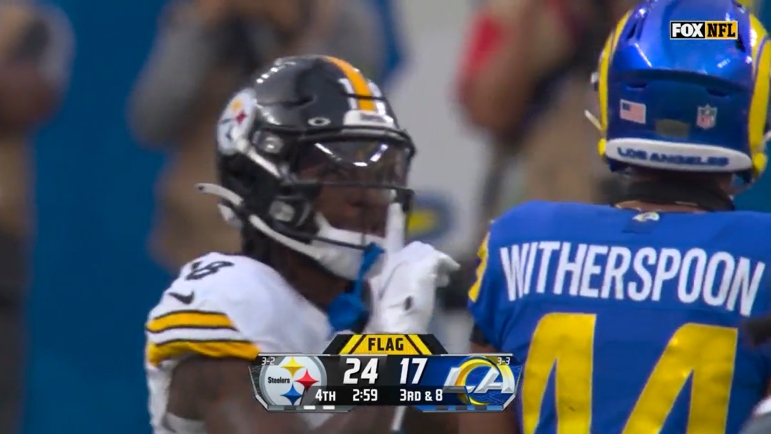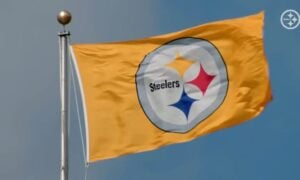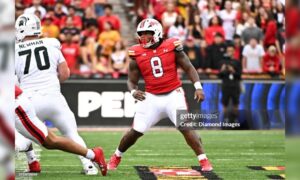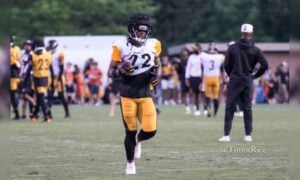For the first time in more than half a decade, the Pittsburgh Steelers offense closed out a game with five-plus minutes remaining on the clock. It didn’t necessarily come easily, however, nor did it come cleanly, or free of controversy. One can easily argue that the Steelers got two breaks in the process, though many fans will focus on the one they feel they didn’t get.
Facing 3rd and 9 with over three minutes to play, QB Kenny Pickett looked for WR Diontae Johnson, working in coverage against CB Ahkello Witherspoon. Johnson maneuvered in such a way that induced, in the officials’ eyes, Witherspoon into committing defensive pass interference.
That would have awarded the Steelers a spot foul and a new set of downs—under normal circumstances. But Johnson reacted to Witherspoon’s outrage by signaling him to be quiet, which prompted the officials to flag him for taunting. The two penalties offset, and the down was replayed. But many believe the penalties should have been enforced separately, one a live-ball foul and one a deal-ball foul. Former NFL official Gene Steratore, however, told Randy Baumann earlier this week on the DVE Morning Show that it was the correct call.
“It was, and it’s the difference between college and professional football. College goes live-ball, dead-ball, and they are very strict about how they define that in detail”, he said. “In the NFL, the play doesn’t really end until the ball is set for the following play. In that moment where a play ends and we have a taunt or we have a situation that occurs just as the play ended, it gets put in the bucket of the previous play, so it became an offset, which we saw in this situation, too”.
Even Steelers head coach Mike Tomlin was not clear on why the penalties offset, as he acknowledged in his weekly press conference on Tuesday. But as I noted in the article linked to above, live-ball and dead-ball fouls can and routinely do offset. And Steratore’s distinction that a play is viewed as whole up until the next play is run is an important one as well.
“They bundle them unless a foul against an official. That is always penalized regardless of where it falls in the sequence”, Steratore said, noting that penalties committed against officials are enforced separately. But with no change of possession, a defensive pass interference made in conjunction with a taunting penalty in the immediate and extending aftermath of the play will offset, as they did here.
Let’s be honest, very few people can actually describe themselves as rules experts, and how many people would even want to be without getting paid for it? We’ve encountered innumerable instances of players admitting that they didn’t know one thing or another could happen, such as games ending in ties. And the fact that the rules change every year doesn’t help matters.
But in this instance, there is no controversy—at least not for the Steelers. The Rams have a much better argument that the defensive pass interference never should have been called in the first place. And that the spot on the subsequent 4th-and-1 quarterback sneak was a very poor one that cost Los Angeles any chance to try to make a comeback.








